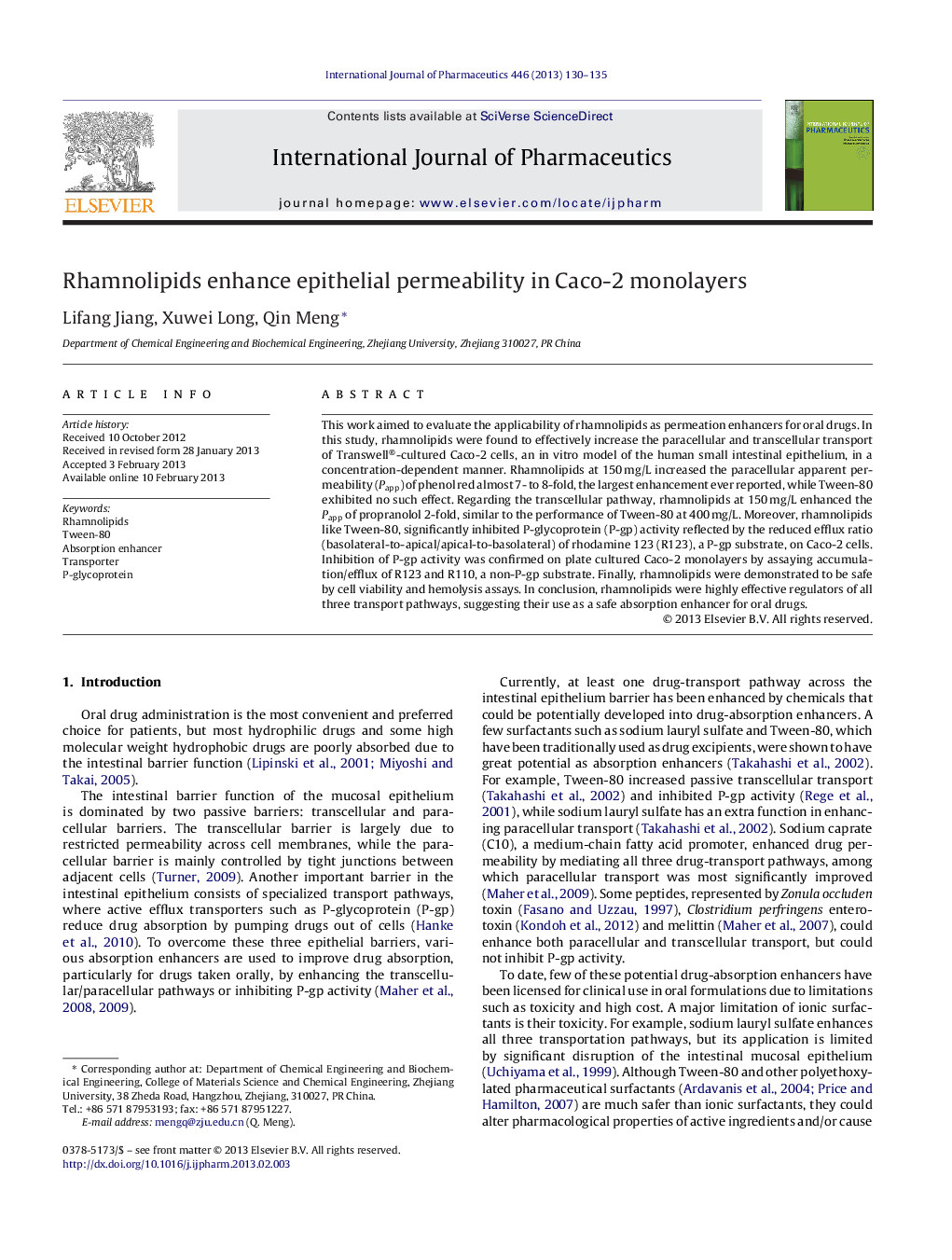| Article ID | Journal | Published Year | Pages | File Type |
|---|---|---|---|---|
| 2502570 | International Journal of Pharmaceutics | 2013 | 6 Pages |
This work aimed to evaluate the applicability of rhamnolipids as permeation enhancers for oral drugs. In this study, rhamnolipids were found to effectively increase the paracellular and transcellular transport of Transwell®-cultured Caco-2 cells, an in vitro model of the human small intestinal epithelium, in a concentration-dependent manner. Rhamnolipids at 150 mg/L increased the paracellular apparent permeability (Papp) of phenol red almost 7- to 8-fold, the largest enhancement ever reported, while Tween-80 exhibited no such effect. Regarding the transcellular pathway, rhamnolipids at 150 mg/L enhanced the Papp of propranolol 2-fold, similar to the performance of Tween-80 at 400 mg/L. Moreover, rhamnolipids like Tween-80, significantly inhibited P-glycoprotein (P-gp) activity reflected by the reduced efflux ratio (basolateral-to-apical/apical-to-basolateral) of rhodamine 123 (R123), a P-gp substrate, on Caco-2 cells. Inhibition of P-gp activity was confirmed on plate cultured Caco-2 monolayers by assaying accumulation/efflux of R123 and R110, a non-P-gp substrate. Finally, rhamnolipids were demonstrated to be safe by cell viability and hemolysis assays. In conclusion, rhamnolipids were highly effective regulators of all three transport pathways, suggesting their use as a safe absorption enhancer for oral drugs.
Graphical abstractRhamnolipids effectively increased the paracellular/transcellular transport and inhibit the P-glycoprotein activity of Transwell®-cultured Caco-2 cells.Figure optionsDownload full-size imageDownload high-quality image (127 K)Download as PowerPoint slide
